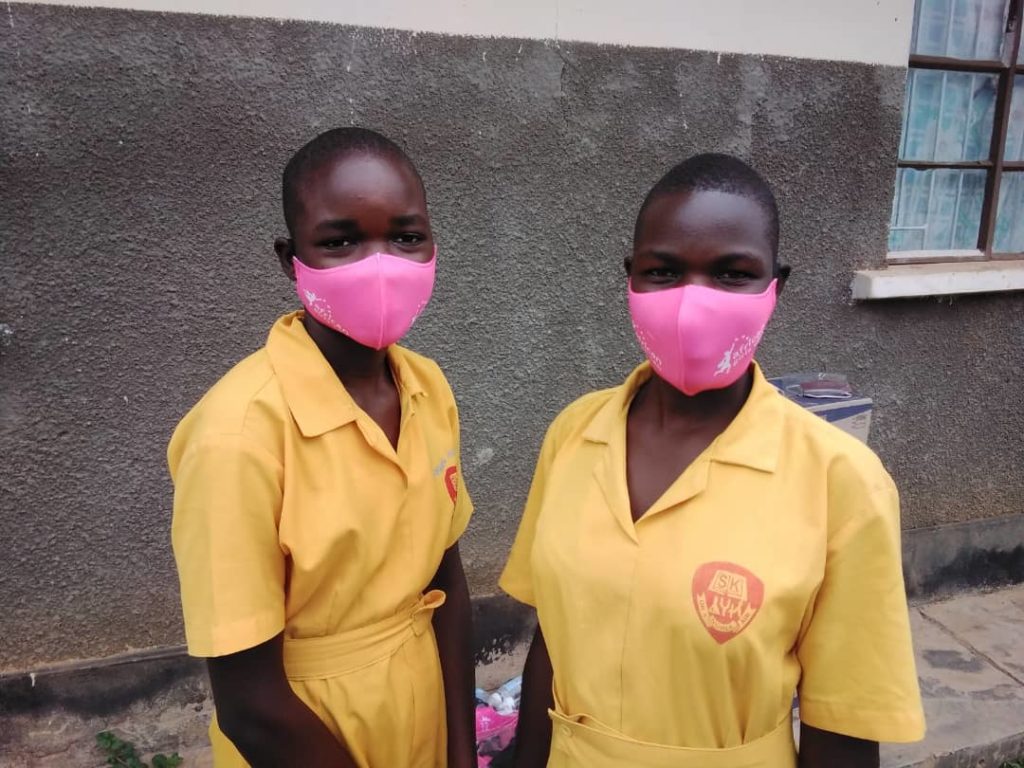Back-to-School – Déjà vu!
January, 2022
Uganda ended the longest pandemic related closure of schools in the world when schools finally reopened on January 10th. The effects of this policy will be felt for generations to come.
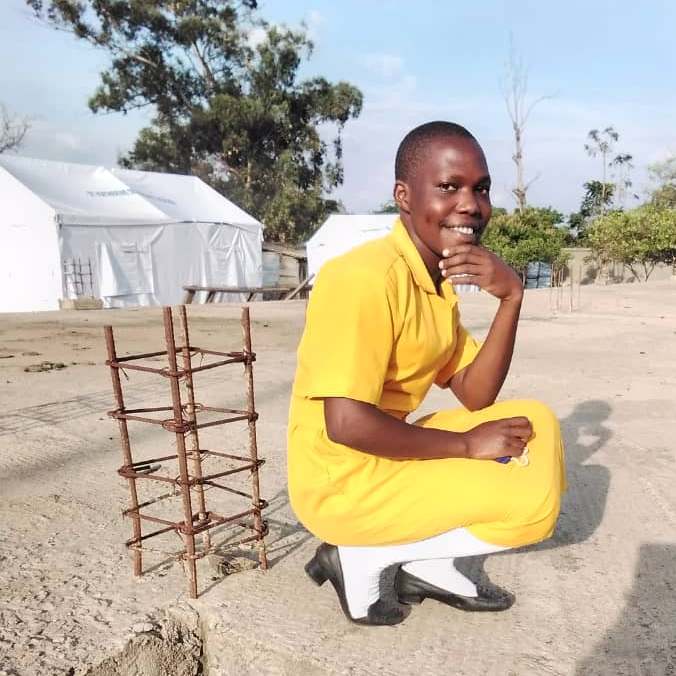
Our girls are some of the lucky ones. They all came back. It is estimated that 1/3 of Ugandan students may never return to school. Girls have been married early and become pregnant.
Many students are returning to school having experienced emotional and physical trauma. Compassionate support and patience will be key to helping them resume their educational life. Again, our girls are fortunate. Their parents have all attended meetings about the importance of keeping their daughters in school. And, African Girls Can students have each other and their teacher liaison to confide in about their fears and stresses.
The professionals at Girl Up Initiative Uganda summarized the challenging issues related to school reopening in this blog.
Girl Up goes on to say “Community-driven organizations (CDOs) have shouldered the brunt of the intervention work to mitigate some of the harmful impacts on vulnerable community members during the prolonged school closures.”
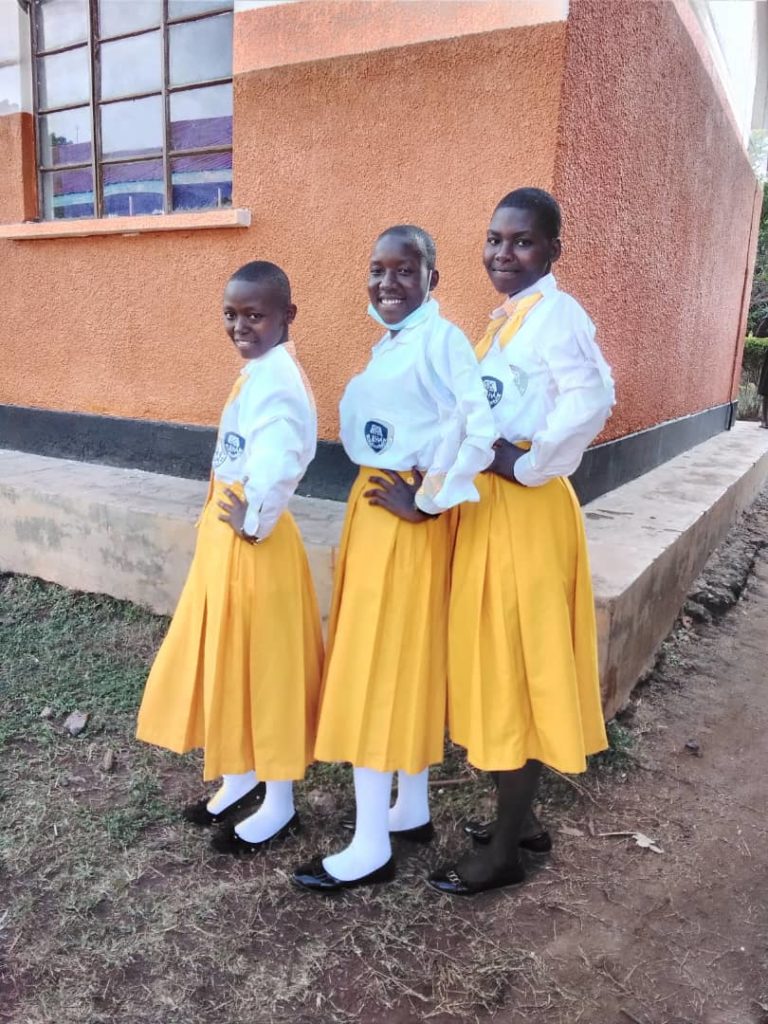
Another leader in girls’ education, She’s the First, explains the serious situation in 2022.
“Pre-pandemic, 130 million girls worldwide were out of school… And now, it’s predicted that after COVID-19, 11 million more girls will never return, as global poverty is increasing for the first time in 20 years.
Make no mistake: These are dire circumstances. But this problem is solvable. Over the past two years, community-based girl organizations have responded heroically to girls’ struggles, to protect them when their rights are most at risk.”
We believe that having an affinity with a group such as African Girls Can (which creates a community) helped keep the 18 girls that we have supported focused on a brighter future, even during the most dispiriting times. Co-Founder Phoebe observes that “all around the country, girls with no interventions during Covid-19 are really struggling right now.”
Two other things supporters might be wondering about:
Are the girls vaccinated? Yes. There were mass vaccination sites at health centers, places of worship, and community centers, countrywide.
What grade are the girls in now? All students were advanced one grade to compensate for the nearly two years they were pursuing self-study (as best they could).
Other students are not as lucky as those supported by African Girls Can. This story and this video highlight their many challenges in returning to school. (We found Rania – the girl featured in the video and she is back to school! Look on our Yearbook page!
Closing the Technology Divide
July, 2021
Unfortunately, classes only lasted a few weeks before schools were closed again – indefinitely. Everyone felt disappointed and frustrated. The complex academic catch-up calendar designed by the school went out the window. The girls returned home to gardens to be tended and siblings to care for.
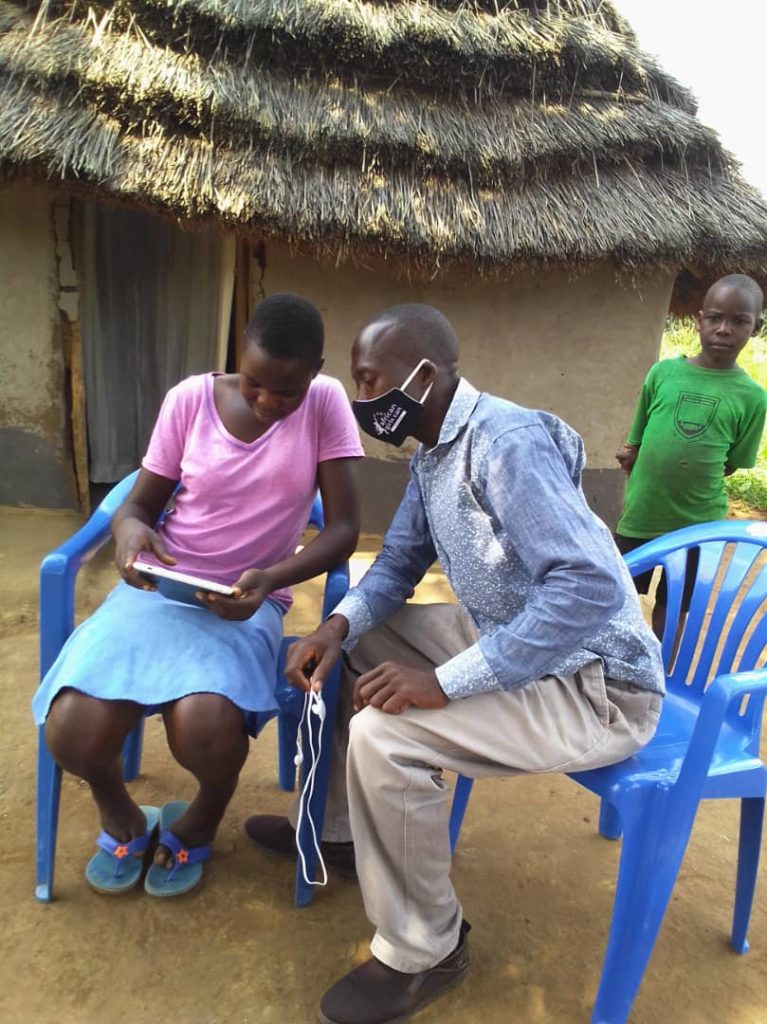 It was time for us to pivot again. Some of the questions we tackled were: How can the girls keep learning? How can they avoid social isolation? Basically, how will they not lose hope?
It was time for us to pivot again. Some of the questions we tackled were: How can the girls keep learning? How can they avoid social isolation? Basically, how will they not lose hope?
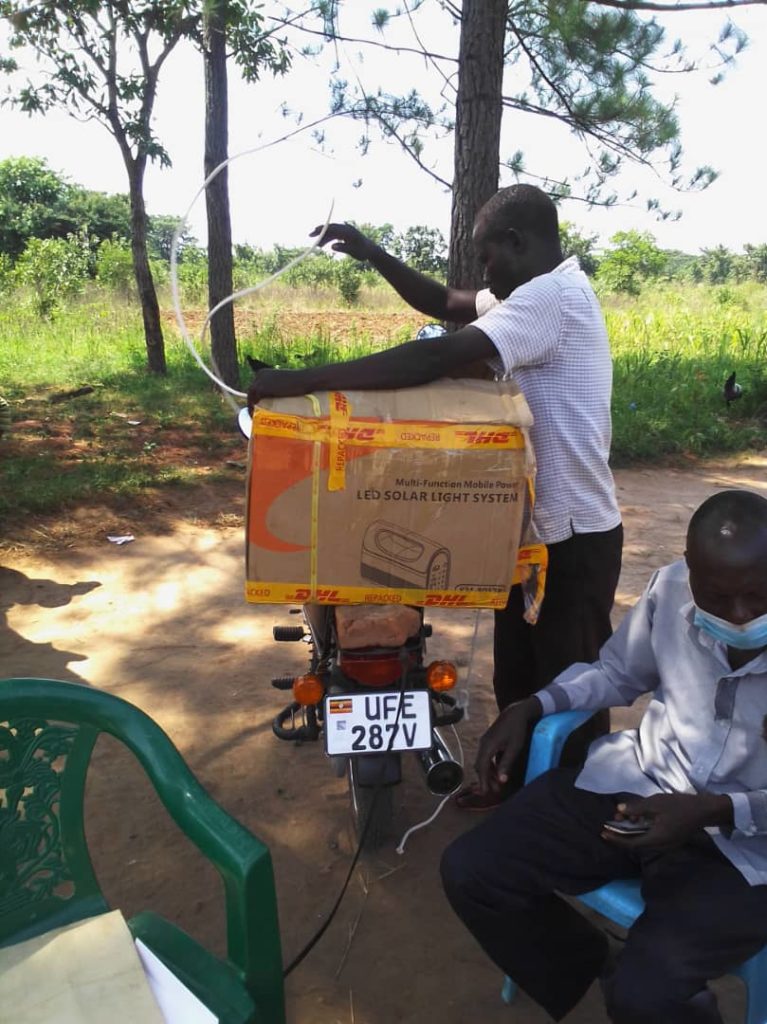
We took the plunge and quickly acquired a tablet and solar charger for each girl (17 tablets, plus one for our teacher liaison who would be responding to questions from the girls). The devices were obtained and programmed in Kampala and sent by DHL to Lira. They then made their way by motorcycle to the girls’ homes where basic training was provided. Girls in the countryside were able to access the internet at community centers.
There would be obstacles to overcome relating to the technology learning curve, internet connectivity in some places, other family members demanding to use the device etc. We might fail, but we had to try.
As the year went on, more e-learning content (specific to grade level and subject) became available. Madame Jennifer sent a steady stream of reminders about class session times to the girls via WhatsApp.
In addition to using the devices for schoolwork, the tablets became a vital lifeline connecting the girls to each other. A WhatsApp group was formed and almost immediately “Good Morning,” “Goodnight,” and encouraging messages began to pop up. It was really sweet to watch these interactions.
In October, we received a request from St. Katherine Secondary School for funds to upgrade their internet connection. We contributed about $1,350, enabling them to reach more girls with online class sessions. We were pleased to be able to serve the broader school community in this way.
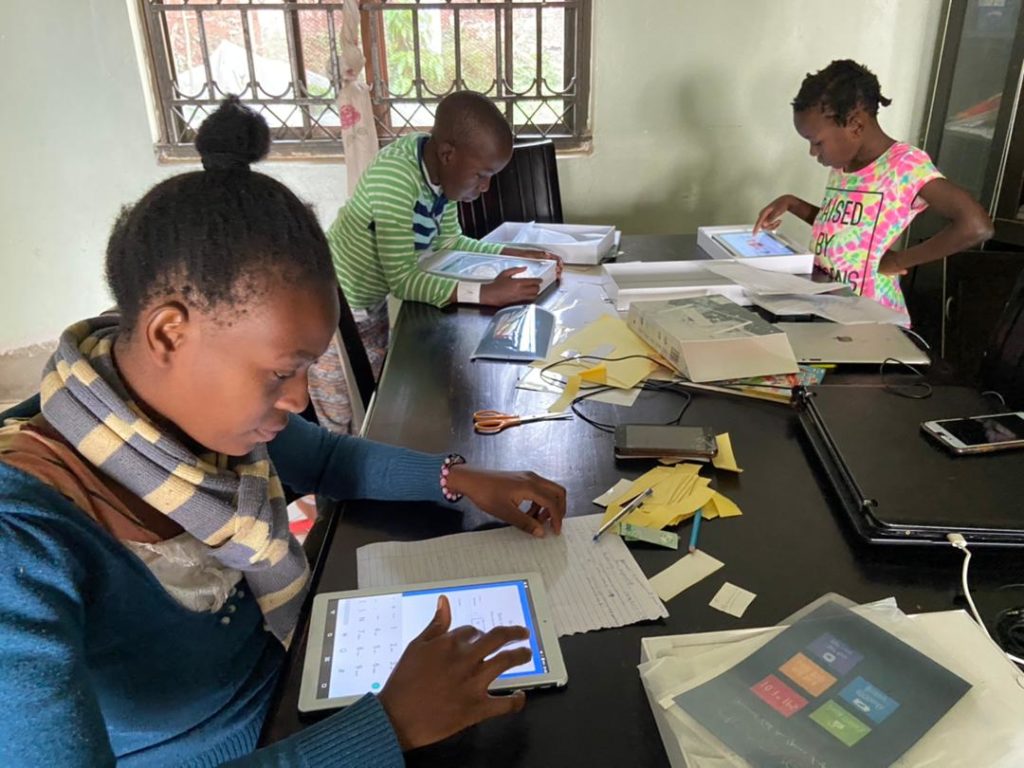
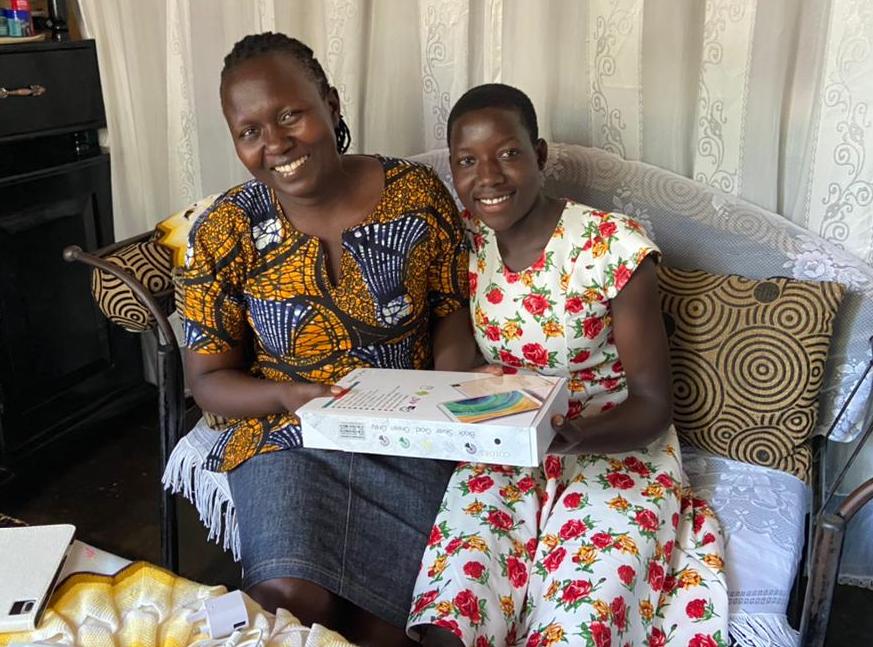
Safe Back-to-School
April, 2021
An entire year has passed since the COVID-19 pandemic became a global crisis. Reflecting on this year, we are proud and relieved that we managed to keep a connection with all the secondary school girls in our program.
We shifted our focus to food security for 16 families, including the graduates from 2019, making deliveries by motorcycle into the countryside. Packets of study materials (grade specific) were included in one delivery. Girls built handwashing stations for their villages.
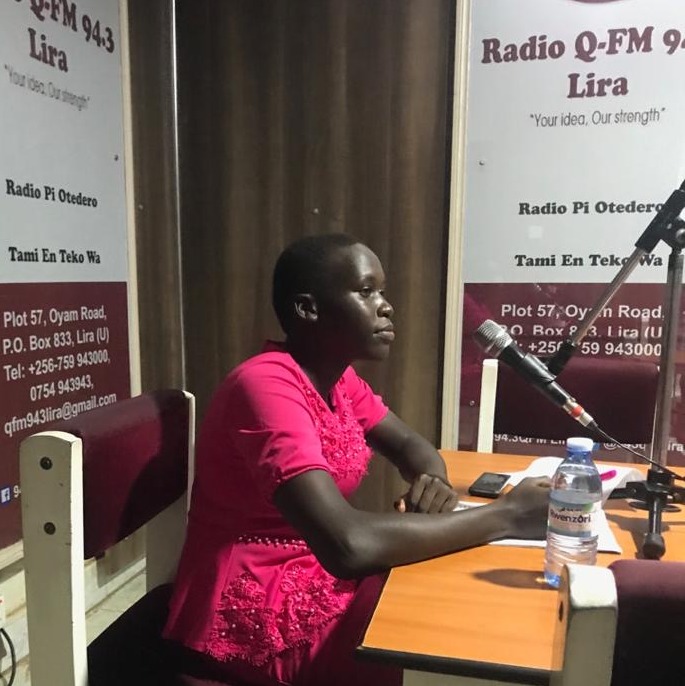 We also redirected funds toward an innovative outreach. Six radio talk shows were broadcast from Lira every other week from July through September and seven AGC students had the opportunity to speak on the radio. This important life skills information was heard throughout Northern Uganda.
We also redirected funds toward an innovative outreach. Six radio talk shows were broadcast from Lira every other week from July through September and seven AGC students had the opportunity to speak on the radio. This important life skills information was heard throughout Northern Uganda.
For sure, though, it was a long, lonely, boring time at home for all the girls. We are so happy to see them all returning to St. Katherine, nose and mouth covered by a mask, but eyes smiling brightly! Students are being brought back in stages based on grade level. This will allow for greater social distancing at the school. Unnecessary visits are banned and visitation days have been cancelled.
- S4/S6 (national exam candidate classes) – mid-Oct, 2020
- S3/S5 – March 1, 2021 (we added two new S5 girls at this time – look at our yearbook)
- S1 – April 12, 2021
- S2 – May 29, 2021
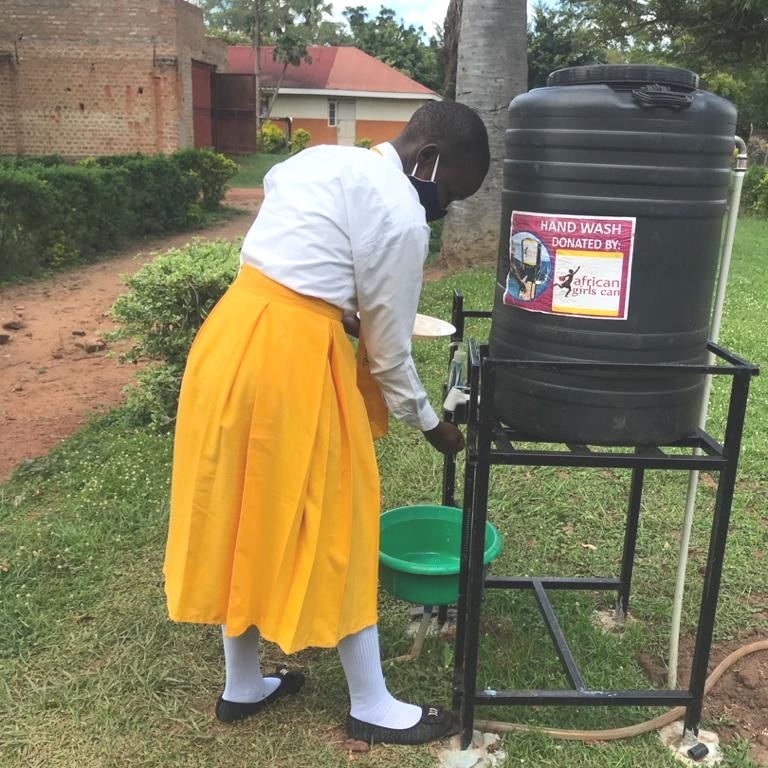 The impact of COVID-19 is ongoing and will be felt for many years to come. Here is one example. The girls had already completed Term I in 2020. Terms for the next two years have been compressed in order to catch up on missed learning time. In order to maximize instruction, the customary beginning, mid-term, and ending exams have been eliminated. This is hopefully an example of “build back better!” The school states that “Teachers are to be oriented and sensitized on effective approaches and methods for accelerated but equitable learning that ensure that no learner is left behind.” The school expects to finally return to its usual schedule in 2024.
The impact of COVID-19 is ongoing and will be felt for many years to come. Here is one example. The girls had already completed Term I in 2020. Terms for the next two years have been compressed in order to catch up on missed learning time. In order to maximize instruction, the customary beginning, mid-term, and ending exams have been eliminated. This is hopefully an example of “build back better!” The school states that “Teachers are to be oriented and sensitized on effective approaches and methods for accelerated but equitable learning that ensure that no learner is left behind.” The school expects to finally return to its usual schedule in 2024.
We have helped to ensure the safety of the girls by providing masks, sanitizer, and a large handwashing station for all students and staff at the school to use. Careful adherence to these measures will be very important because the vaccine for COVID-19 will take a long time to reach Uganda. The country is part of the COVAX program and the extremely few doses so far have gone solely to healthcare workers. Here’s an inside look at what it takes to deliver vaccine to some of these remote regions.
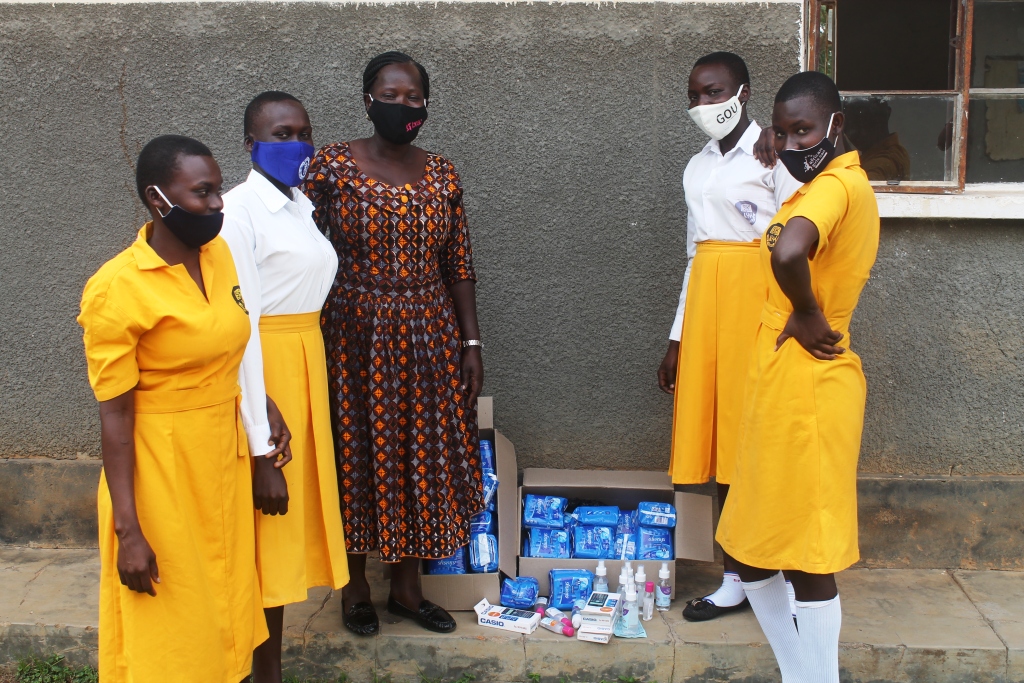
Life Changes – Abruptly and Dramatically
April, 2020
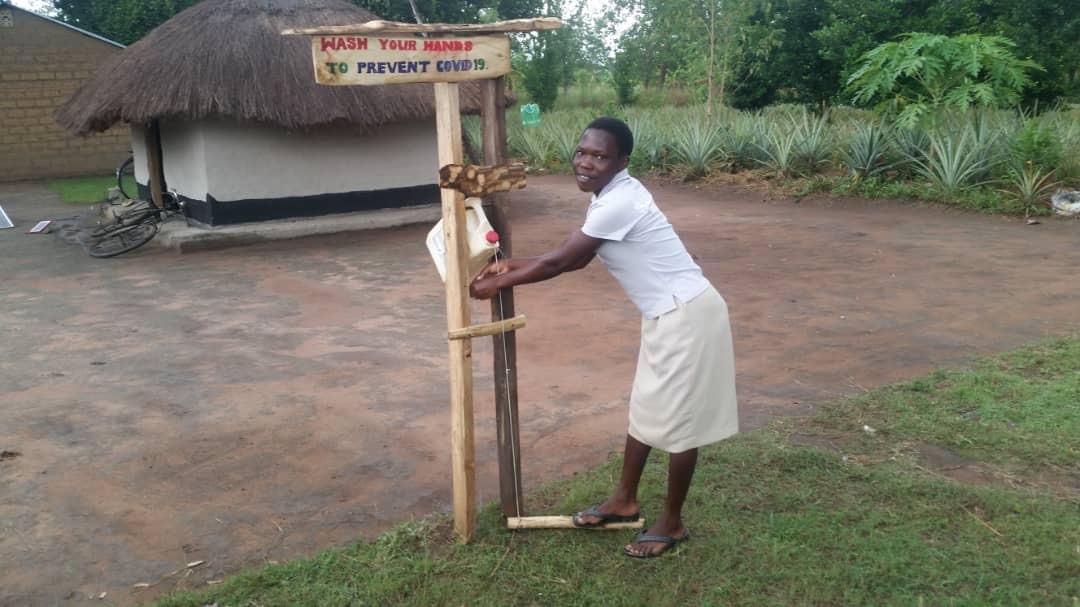
COVID-19 has reached every corner of the earth. In Uganda, the government takes pandemics very seriously, having had previous experience with ebola, measles, and other viruses. Schools were closed and all students sent home indefinitely in mid-March. The country has been in a complete lockdown since that time in order to stop the spread of the virus, which unfortunately is still coming in across the border from Kenya (much of Uganda’s food comes from its neighbor to the east and truck drivers have tested positive). There is a complete lack of healthcare infrastructure to care for its people There are only 55 functional ICU beds in the entire country (this amounts to 1.3 beds per million people) and 80% of them are located in the capital city of Kampala.
The situation in Uganda and similar developing countries is more precarious than in many other places. The vast majority of people rely on day laboring jobs to feed their families and have little or no savings. They generally take packed public transportation to get there and home. Since this activity and movement in general has ground to a halt, food scarcity is a serious problem.
African Girls Can feels it is important to support our 16 families (13 current students and 3 graduates of the program, 2 of whom were about to enroll in nursing school) during this time of crisis. The first trimester of tuition for 2020 was paid, but since that time funds from the organization have been used to send monthly food deliveries to the families. This includes posho (corn meal), beans, salt, sugar, cooking oil, kerosene, soap, and sanitary pads. We want to make sure that the families do not become so desperate that they are tempted to marry off their daughters.
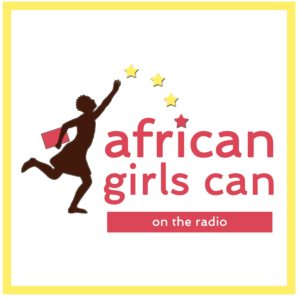 Our girls, in the rural Lira, Uganda area, do not have access to the internet or television. (Kids in higher socio-economic classes are having more success studying at home during the pandemic as some academic instruction is available this way). They do, however, have radios, and we are planning to broadcast one-hour shows with messages of encouragement from a local station. (Read the radio scripts! Topics to date: Resilience, Self-Advocating, Self-Esteem.) We have also tried to stay in touch with the girls by phone (and, importantly, their parents since they are the decision makers about potential marriage.) The girls brought home minimal academic materials as the situation was viewed as temporary. Our dedicated teacher liaison, Ms. Jennifer Nyakober, collected and copied study materials from each of the 7 core subjects (a big task as our girls are in all 6 grade levels). These packets were delivered to the girls with the second food drop off.
Our girls, in the rural Lira, Uganda area, do not have access to the internet or television. (Kids in higher socio-economic classes are having more success studying at home during the pandemic as some academic instruction is available this way). They do, however, have radios, and we are planning to broadcast one-hour shows with messages of encouragement from a local station. (Read the radio scripts! Topics to date: Resilience, Self-Advocating, Self-Esteem.) We have also tried to stay in touch with the girls by phone (and, importantly, their parents since they are the decision makers about potential marriage.) The girls brought home minimal academic materials as the situation was viewed as temporary. Our dedicated teacher liaison, Ms. Jennifer Nyakober, collected and copied study materials from each of the 7 core subjects (a big task as our girls are in all 6 grade levels). These packets were delivered to the girls with the second food drop off.
Women and girls are going to be disproportionately negatively impacted by the pandemic and sadly it may undo much of the progress being made in the movement to empower and educate them. As families become desperate and deplete all resources, they may marry their girls off in order to get a bride price and have one less mouth to feed. Girls are subjected to violence and abuse while stuck at home – school is actually a much safer space for them (aside from the other benefits of intellectual stimulation, social engagement, and learning skills to maximize their potential in life). Girls who feel an affiliation with a group, such as African Girls Can, are hopefully able to maintain their focus and goals to stay the course (i.e. not become pregnant or be married) and return to school.
Learn More about the challenges faced by girls worldwide during the COVID-19 pandemic.
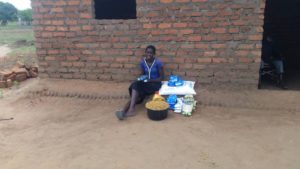 |
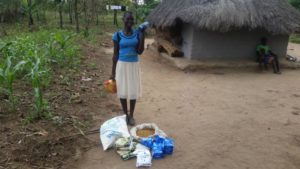 |
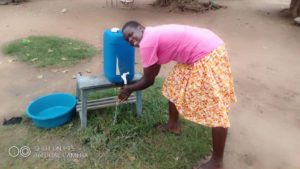 |
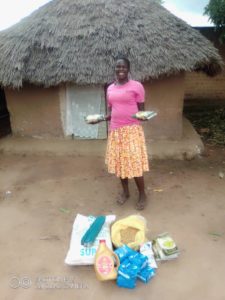 |
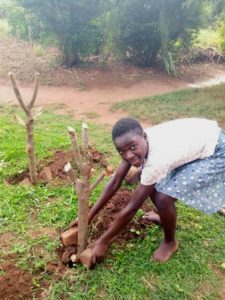 |
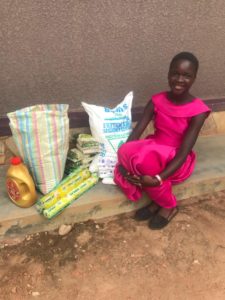 |
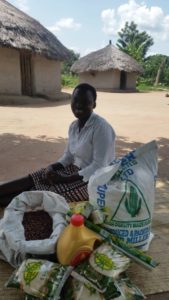 |
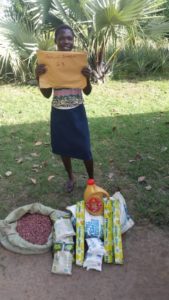 |
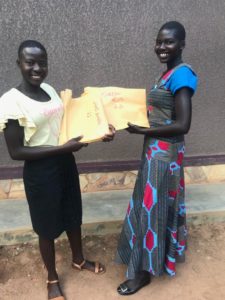 |
Notice the handwashing stations in the photos on this page?
[ninja-popup ID=2363] Here are instructions for making your own “tippy tap”. [/ninja-popup]

